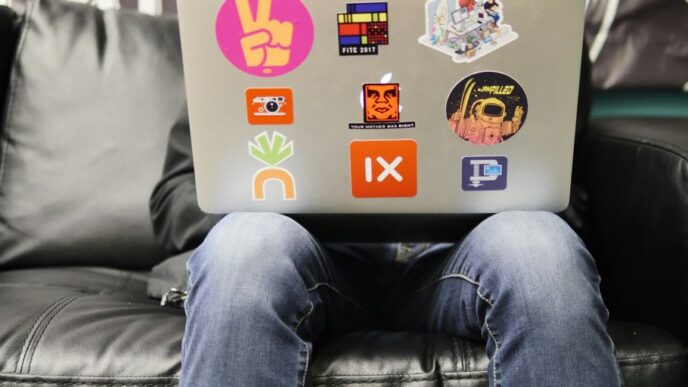The tech world keeps changing, and so do the legal issues that come with it. As we head into 2025, there’s a lot to keep track of, from who owns art made by AI to how companies handle data breaches. It feels like every week there’s a new type of lawsuit or a new law to consider. Staying on top of these tech lawsuits is getting more complicated for everyone involved.
Key Takeaways
- AI is creating new legal fights over who owns content generated by machines and how algorithms can be protected or challenged in court.
- Companies face more lawsuits if their software has security flaws, especially with stricter data privacy rules in place.
- Following industry standards is becoming more important for defending against lawsuits, as courts often use them to decide if a company was careful enough.
- Buying or selling tech companies involves more complex deals due to global uncertainty, with a closer look at hardware companies and how deals are structured.
- Data breach lawsuits are popping up in different places, with plaintiffs looking for jurisdictions with laws that are easier for them to win in.
Navigating AI and Intellectual Property Disputes
Artificial intelligence is really changing how software is made and used, but it’s also creating a whole mess of legal headaches, especially when it comes to intellectual property. It feels like every week there’s a new lawsuit popping up about AI.
Ownership of AI-Generated Works
One of the biggest questions right now is who actually owns stuff that AI creates. Is it the person who built the AI, the person who used it, or does nobody own it? Courts are just starting to figure this out, and honestly, the rulings are all over the place. It means companies need to be super clear in their contracts about who gets what, otherwise, they’re just asking for trouble down the line. It’s a tricky area, and we’re seeing a lot of AI-related disputes in media that touch on this.
Proprietary Algorithm Litigation
As more businesses rely on AI to do their thing, lawsuits over the secret sauce – the algorithms – are on the rise. These algorithms are often kept super private, which makes it tough in court. Judges have to balance protecting a company’s trade secrets with the need to actually understand what’s going on during a trial. It’s a real balancing act.
Challenges in Patenting AI Processes
Getting a patent for AI processes is another big legal battleground. The legal system is trying to decide if these AI processes are new enough and not obvious enough to get a patent. With so many patent applications for AI coming in, we’re going to see a lot more fights over patent infringement, especially in fields like medicine, finance, and self-driving cars. It’s a fast-moving target.
Cybersecurity Breaches and Evolving Liability

Cybersecurity threats are getting more intense, and that means the legal fallout from software weaknesses is a bigger deal than ever. Companies really can’t afford to just brush off the risks anymore. We’re seeing more and more lawsuits pop up from customers, partners, and even employees when a breach happens. Courts are really looking closely at whether businesses took sensible steps to keep their software safe. It makes following cybersecurity best practices super important.
Negligence Claims and Software Vulnerabilities
When a company’s cybersecurity fails and sensitive data gets out, lawsuits are almost a given. Think about it: if your personal information is compromised because a company didn’t patch a known flaw, you’d probably want some recourse. Courts are now using industry standards as a way to figure out if a company acted reasonably. For example, sticking to something like ISO/IEC 27001 for information security can show you did your homework, which might help reduce your legal responsibility in these cases. It’s all about proving you weren’t negligent.
Impact of Data Privacy Regulations
Rules like the GDPR and the CCPA are setting some pretty strict requirements for how companies have to protect data. If you don’t follow them, you could be looking at big fines and more lawsuits. It looks like in 2025, we’ll see even more regulations, especially for newer tech areas like the Internet of Things (IoT) and quantum computing. This just means the scope of potential litigation keeps getting wider. It’s tough to keep up, and some provinces in Canada, like British Columbia and Quebec, have laws that make it easier for plaintiffs to file class actions after data breaches, often without needing to prove actual harm. This can lead to what lawyers call "forum shopping," where plaintiffs pick jurisdictions that seem more favorable to their case, sometimes using new legal arguments like data misuse. You can find more insights into current trends in Canadian data liability in this study on tech contracts.
The Role of Incident Response Plans
How a company handles a breach after it happens can really affect its legal standing. If a company doesn’t have a good plan in place or doesn’t act fast enough when something goes wrong, the damage can get worse, and the penalties might be tougher. That’s why legal teams are getting more involved in creating and putting these plans into action. They want to make sure the plans meet what the law expects, which is always changing. Having a solid incident response plan is key to managing liability.
Industry Standards in Software Litigation
When software goes wrong, or when companies are accused of not protecting data properly, courts often look at what the industry generally does. It’s like a yardstick for figuring out if a company was being careful enough. If a company followed the usual practices, it can help them out if they get sued. But if they ignored what everyone else was doing, that can make things worse.
Influence on Liability Assessments
Think about it: if a company is accused of not securing its software well enough, and it turns out they didn’t follow common security steps that most other companies in their field do, that’s a big problem for them. For example, if there’s a data breach, and the company didn’t bother with basic security measures that are pretty standard now, like encrypting sensitive data, a court will likely see that as negligence. This adherence to or deviation from established norms significantly shapes how liability is determined. It’s not just about what the law explicitly says, but also about what’s considered reasonable practice in the tech world. We’re seeing this play out in cases involving everything from simple app vulnerabilities to complex cloud security failures. It’s why staying current with what’s considered best practice is so important for any software company, big or small. It’s a key part of how companies like Virgin Galactic prepare for future ventures.
Emerging Standards in Tech Fields
New tech means new rules, or at least, new ways of doing things that become the expected way. Things like AI, blockchain, and the next generation of mobile networks are all developing their own sets of best practices. Companies that jump on these new standards early might find themselves on firmer legal ground if issues pop up later. On the flip side, if a company is using new tech but not following the emerging standards, they could be opening themselves up to lawsuits. It’s a bit of a race to keep up, and the legal system is still figuring out how to apply these new standards in court.
Standards as a Basis for Compliance
Sometimes, these industry standards aren’t just suggestions; they become part of the actual rules. Government agencies and regulators often point to these standards when setting requirements. For instance, if a government agency says companies need to protect data, they might specifically mention guidelines from groups like NIST. So, following these standards isn’t just good practice; it’s often a requirement to stay on the right side of the law. Companies need to keep a close eye on updates to these standards because not complying can lead to fines and legal trouble. It’s all about making sure your software development and security practices align with what’s expected, both by the industry and by regulators.
Key Trends in Tech M&A Litigation
Mergers and acquisitions in the tech sector are always a bit of a wild ride, and 2025 is no different. We’re seeing some interesting shifts as companies try to make sense of a global economy that’s, well, a little shaky. Think tariffs, interest rate ups and downs, and general political uncertainty – it all makes buyers and sellers pause and rethink their moves. Despite a dip in the sheer number of deals compared to last year, the total value of transactions is actually up, which is kind of a mixed signal, right? It means the big, strategic deals are still happening, but everyone’s being more careful.
Strategic Deals Amid Global Volatility
It’s a cautious climate out there for tech M&A. Companies are definitely watching global events closely. This careful approach means dealmakers are looking for ways to spread out the risk. For instance, earnouts and deferred payments are becoming super common. These structures help balance what the buyer pays against how the company actually performs after the deal closes. It’s a way to make sure everyone’s expectations are more aligned, especially when the future feels a bit unpredictable. We’re seeing a lot of optimism for the long term, though. Many decision-makers believe that current trade issues are temporary and will eventually smooth out. It’s a bit like waiting out a storm, hoping for clearer skies ahead.
Evolving Deal Structures
As mentioned, the way deals are put together is changing. Instead of just a straight cash payment, you’ll see more complex arrangements. Earnouts, where part of the payment depends on future performance, are a big one. Deferred payments, where money is paid out over time, are also popular. This helps manage risk in uncertain times. It’s all about finding creative ways to get deals done when the economic forecast isn’t perfectly clear. This flexibility is key to keeping the M&A market moving.
Scrutiny on Hardware Firms
While software and AI companies are still hot commodities, companies focused on hardware are facing a bit more of a tough review. Buyers and regulators seem to be looking more closely at hardware-centric businesses. This could be due to supply chain concerns, geopolitical factors, or just the nature of hardware development cycles. It means hardware companies might need to be extra prepared to justify their valuations and business models when they’re looking to buy or sell. It’s not that hardware is out, but it’s definitely getting a second look in the current environment.
Data Breach Class Actions and Forum Shopping

Uneven Data Privacy Litigation Across Jurisdictions
Data privacy lawsuits are playing out differently depending on where you are. In places like British Columbia, Quebec, and Newfoundland and Labrador, it’s become simpler to get class actions going after data breaches. This is often because of general privacy laws that don’t always require proving actual harm, making it easier for plaintiffs to get their cases certified. It’s a bit of a green light for those bringing claims.
Legal Gaps and Plaintiff-Friendly Statutes
Some provinces, like Ontario and Alberta, have taken a different approach. Recent court decisions there have actually made it harder for companies to be held responsible for data issues. This has led to plaintiffs looking for more favorable places to file their cases. They’re also trying out new legal arguments, like claims about data misuse or the loss of data value. It’s a strategic move to find the path of least resistance.
Shifting Claims and New Legal Theories
Because of these differences, we’re seeing a trend where lawsuits are being filed in jurisdictions that seem more welcoming to plaintiffs. Companies are facing new types of claims, not just about the breach itself, but also about how data was handled before and after. For instance, a case against Amazon involved claims about collecting and selling precise location data without proper consent, especially concerning health-related information, under Washington’s My Health My Data Act. This shows how legal theories are expanding beyond simple breach notifications, touching on consent, data usage, and even potential implications for health services.
Antitrust Actions in the Tech Sector
Antitrust lawsuits in the tech world are really heating up, and it feels like every week there’s a new case making headlines. Companies are facing scrutiny not just for how they operate, but for how they use data and manage their market dominance. It’s a complex area, and the legal battles are getting pretty intense.
Monopolistic Practices in Software Markets
We’re seeing a lot of focus on whether big tech companies are using their power unfairly. For instance, there’s a case where a company is accused of using its market position to push out competitors. The core argument often revolves around whether a company’s actions, like exclusive deals or bundling services, actually harm competition or just represent smart business. It’s a tough line to draw, and courts are really digging into the details of how these software markets function. Think about how some platforms might make it hard for other software to work with theirs, or how they might favor their own products. These kinds of practices are what antitrust regulators are watching closely.
Exploitation of Publisher Content for AI
This is a really hot topic right now, especially with the rise of AI. Companies are being sued for how they use content from publishers to train their AI models. One major lawsuit claims that a search giant is essentially using publisher content to create AI summaries that then pull users away from the original sources. This means publishers, who rely on website traffic for revenue, are losing out. The argument is that because these AI models need so much data, and because there aren’t many alternatives to these big tech platforms, publishers are forced to let their content be used, even if it hurts their business. It’s a debate about whether this is fair use or something more.
Challenges to Antitrust Claims
Defending against these antitrust claims isn’t easy, but companies are fighting back. Often, the defense will argue that their practices are simply a result of innovation and competition, not some sort of illegal monopolistic behavior. They might also challenge the very basis of the claims, like arguing that the plaintiffs haven’t actually shown any real harm. For example, in one case, a judge dismissed a lawsuit because the customers couldn’t prove they overpaid for products due to a company’s algorithms. It shows that just alleging anticompetitive behavior isn’t enough; you often need to demonstrate concrete financial damage. The legal landscape here is constantly shifting, and how these cases are decided will have a big impact on the tech industry going forward. It’s definitely something to keep an eye on, especially as more regulations are being considered globally, impacting how tech companies operate and comply with rules.
Looking Ahead: Staying Ahead of the Curve
So, as we wrap up our look at tech lawsuits in 2025, it’s pretty clear things aren’t slowing down. From AI ownership questions to data breach fallout and new rules for emerging tech, it’s a lot to keep track of. Companies really need to be proactive, getting legal advice early and keeping their policies up to date. Staying on top of industry standards and having solid plans for when things go wrong isn’t just good practice anymore; it’s pretty much a necessity to avoid big legal headaches. It’s a complex world out there, but with the right preparation, businesses can manage the risks and keep innovating.
Frequently Asked Questions
Who owns stuff made by AI?
Think about who made something with AI. Is it the person who built the AI program, the person who used it, or maybe no one? This is a big question lawyers and courts are trying to figure out right now. It’s important for companies to have clear rules about this in their contracts to avoid future arguments.
What happens if a company gets hacked?
When a company’s computer systems get hacked and private information is stolen, people can sue. Courts will look at whether the company did enough to keep its software safe. Following security rules and having a plan for what to do if a hack happens is super important to avoid big trouble.
Do industry rules help companies avoid lawsuits?
Yes, following rules and guidelines set by the tech industry can help companies avoid lawsuits. If a company follows these standards, it’s like having proof they acted responsibly. If they don’t, they might be seen as careless and face legal problems.
Are tech company sales causing legal fights?
Buying or selling tech companies can get complicated, especially when the world’s economy is a bit shaky. Companies might use payment plans or delayed payments to make deals fairer. Even with some uncertainty, people in the tech business are generally hopeful about the future.
What are ‘data breach class actions’?
When a company loses a lot of people’s private data, many people can join together to sue the company. Sometimes, lawsuits are filed in places where the laws are easier for the people suing to win. This is called ‘forum shopping,’ and it can lead to different outcomes depending on where the case is heard.
Are tech companies being sued for being too powerful or misusing content?
Some big tech companies might be using their power unfairly, like controlling too much of the software market. Also, companies that create AI might be using content from other websites without permission to train their AI. These actions can lead to lawsuits about whether these companies are playing fair.














